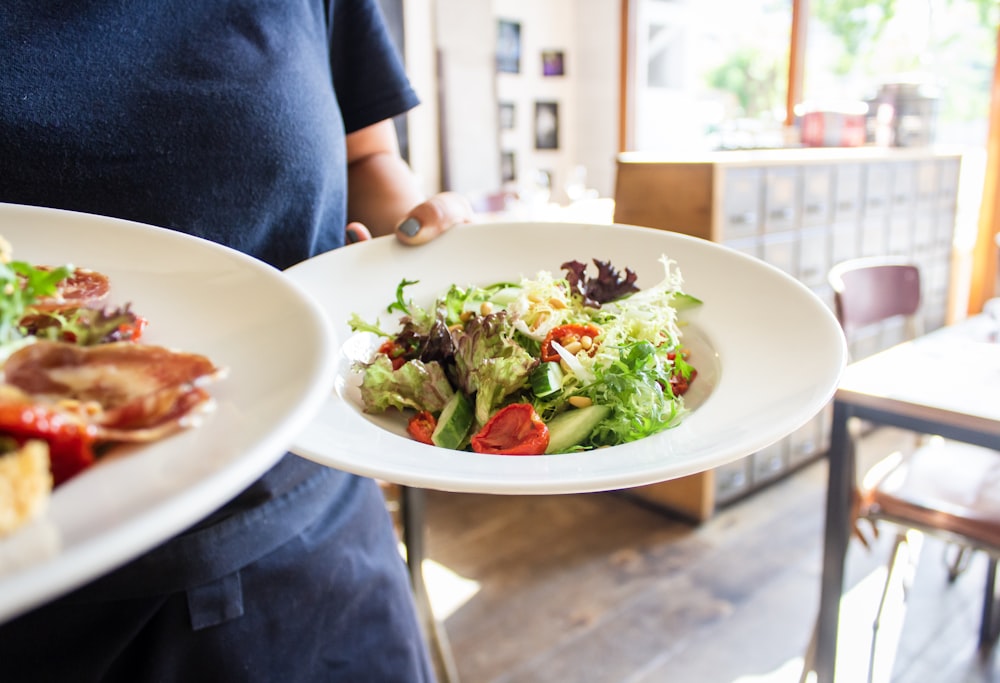We’re often told to watch what we eat to stay healthy. This is especially true during the holiday season, when family gatherings and office parties make it all too easy to overeat or indulge in unhealthy cravings. But for people with obstructive sleep apnea, a healthy diet can be even more important.
In fact, research indicates that eating a healthy diet can have a tremendous impact on reducing the severity of your sleep apnea, even when those dietary changes don’t cause you to lose weight. Here’s what you should know.
What Research Says About Diet and Sleep Apnea

Some of the latest research on diet and sleep apnea comes from Spain, where researchers divided a set of obese and overweight men into two groups — one that underwent some basic lifestyle interventions, and one that did not.
For the group that had lifestyle interventions, a key focus was a healthy diet. The goal wasn’t to restrict calories, but instead to eat more whole foods like fruits, vegetables, and poultry, while also avoiding alcohol, overly processed food and meat, salty snacks, and sugary drinks. This group was also encouraged to increase their daily step count.
After a mere eight weeks, the “lifestyle changes” group had reduced their sleep apnea episodes by 51 percent and lost an average of 16 pounds. Fifteen percent of this group even had “complete remission” of their sleep apnea. After six months, study participants had maintained weight loss and lowered their blood pressure. At this time, 30 percent of the group eating healthy diet had remission of sleep apnea.
This isn’t the first study to show a healthy diet making such an impact for individuals with sleep apnea, either. Previous studies have shown that the Mediterranean diet and paleo diet helped reduce the severity of sleep apnea, even when study participants didn’t lose weight from following these diets.
Why Does Diet Make Such a Difference?

When considering why diet can have such a big impact on obstructive sleep apnea, it’s only natural that your first thought would be that a healthy diet can help you shed extra pounds. After all, being overweight is a leading risk factor for obstructive sleep apnea. Having excess fatty tissue (especially around the neck) makes it more likely that the body’s airways will collapse during sleep.
Eating a healthy diet can make it easier to reduce body fat, especially when you are also improving your exercise habits. This in turn can reduce the frequency and severity of sleep apnea incidents.
However, some of these studies have found that weight loss isn’t necessarily needed to improve sleep apnea through a healthy diet. So how can healthy eating still help? It is believed that a diet high in unhealthy processed foods can lead to inflammation — which is also a contributor to sleep apnea.
By no longer eating processed foods and eating a healthy, balanced diet, the body is able to remove inflammatory substances. Even if one’s weight stays the same, reducing inflammation can have a powerful impact on mitigating sleep apnea.
Of course, a healthy diet won’t just help you manage sleep apnea. Eating healthy can lower the risk of heart disease and high blood pressure, as well as provide more energy for your daily activities. And best of all, you don’t necessarily have to worry about counting calories to enjoy these health benefits!
How CPAP Therapy Can Help

While some participants in these recent healthy diet studies were able to have their sleep apnea go into remission, this wasn’t the case for everyone. Chances are good that to keep your sleep apnea in check, you will need to continue using a CPAP machine under the guidance of a sleep specialist. By providing a steady flow of pressurized air throughout the night, a CPAP machine will keep your airways open so you can feel well rested in the morning.
So what’s the best course of action? Work with a physician to make healthy changes to your diet and lifestyle. Then, work with your sleep specialist to track how these lifestyle changes are affecting your sleep apnea. Even if you don’t get to a point where you can discontinue use of your CPAP machine, you may find yourself able to adjust to a lower pressure setting for more comfortable therapy.
You should never just quit CPAP therapy because you’ve noticed other improvements to your health after switching to a healthy diet. Even mild sleep apnea, if left untreated, can result in chronic fatigue and increase your risk for health issues like resistant hypertension. Make dietary changes, but work closely with your sleep specialist to ensure that you are managing your sleep apnea appropriately.
With quality sleep and a healthier lifestyle in general, you will be in far better shape for the future!
Make Sleep Apnea a Problem of the Past!
Improving your diet can have a surprisingly big impact on sleep apnea. As studies show, eating healthy could even cause obstructive sleep apnea to subside altogether! Of course, not everyone is that lucky — and for most people a CPAP machine will remain a necessity for keeping sleep apnea in check.
Of course, the cost of CPAP machines and other supplies such as masks and replacement parts can add up quickly, especially if you don’t have insurance. This is where Help Medical Supplies comes in. With discounted prices on a wide range of CPAP machines, available financing on select purchases, and free shipping on all orders of $99 or more, getting the CPAP equipment you need has never been easier.

